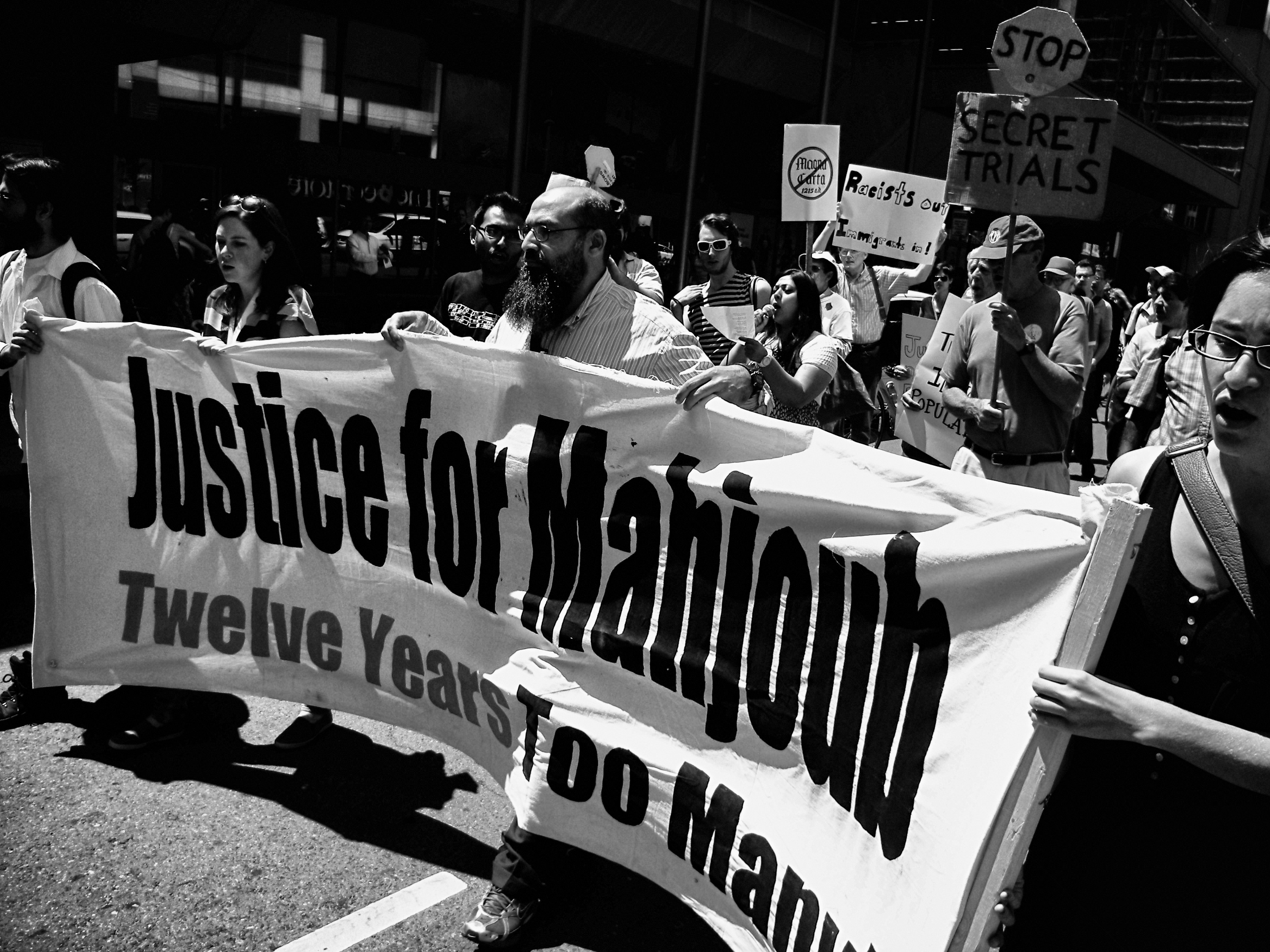Mohammad Mahjoub’s conditions under house arrest were just too much for his family to handle. “All of them were jailed with me in our house,” said Mahjoub in a recent interview.
“And they were my jailers.”
He was under surveillance 24/7 by Canada Border Services Agency (CBSA) officers. Every time he left home with his family, CBSA officers were on him like a “second shadow.”
“It was very disturbing to my family,” he said.
As a result of his conditions, their lives were under constant investigation too. Their mail was intercepted, phones tapped. The “abuse” was constant and unrelenting.
So Mahjoub made the painful decision to return to detention in order to protect his family.
Mahjoub has been living under a security certificate in Canada since June 2000. He spent eight years in prison, three of them in the Muslim-only Guantanamo North (the now closed Kingston Immigration Holding Centre).
And he’s never been charged.
Since the Supreme Court threw out his first security certificate as unconstitutional in 2007, he has been in pre-trial detention. His case has been suspended since the government seized the defence documents last summer.
In March 2010, when the court decided to release Mahjoub again, he lived alone but under more severe conditions than when he previously resided with his family.
A security camera was installed outside the door of his home. His phone was tapped. His mail was intercepted. Nobody was allowed to enter his home without prior approval from the CBSA. Even the windows had motion detection sensors on them.
“Whenever I wanted to open a window to get some fresh air, I had to call my jailer,” said Mahjoub, who is still monitored by a GPS tracking bracelet he is forced to wear 24/7.
If the device failed, he was held accountable.
Numerous times he was accused of violating his house arrest conditions. But when he went to court, the Crown couldn’t produce sufficient evidence to prove their case.
Security certificates allow the government to indefinitely detain and deport people based on their profile. Courts have ruled that the presumption of innocence does not apply.
The case against the detainees, assembled by the Canadian Security Intelligence Service (CSIS), is secret and, therefore, not disclosed to detainees or their lawyers.
On Tuesday afternoon, Mahjoub and his supporters stood outside the CSIS Toronto region office building on Front Street.
They came here to demand his freedom and that of the other two men still being held under security certificates.
They came here to mark 12 years of detention without charge. Twelve years of abuse. Of exploitation.
“This obscure looking building is where Canada’s so-called intelligence agency rests,” said Syed Hussan, an organizer with the Justice for Mahjoub Network, pointing to the building directly behind him at 277 Front Street in Toronto.
“For twelve years they’ve held Mr. Mahjoub on information that’s been obtained by torture.”
They purposely chose to come together on the same day that the United Nations declared the International Day in Support of Victims of Torture in 1998.
To speak out against the crime of torture as well as honour and support victims and survivors throughout the world.
“And that’s what Mr. Mahjoub is,” said Hussan.
“He escaped the Mubarek regime as a torture survivor and came to Canada seeking refuge and in its place he’s been offered abuse.”
Not only did they call for Mahjoub’s freedom, they want him compensated for the pain and suffering he and his family have had to endure over the last 12 years.
And they want CSIS and the Department of Justice to be held accountable for their roles in contributing to his life of misery.
Until March, Mr. Mahjoub was prohibited from speaking publicly about his situation.
“Twelve years ago, I was arrested in Hollywood-style by CSIS,” said Mahjoub.
Since then, he’s been detained without charges or a fair trial.
“Charge me or release me and withdraw the case. And apologize to me and my family here and in Egypt.”
Mahjoub said that his three brothers were arrested in Egypt based on information that CSIS allegedly passed to the Mubarek regime.
They spent eight years in prison, without charge or trial, before they were released.
“My case is political, not a legal one,” said Mahjoub. “The government of Canada has detained me on behalf of Mubarek. And right now he’s in jail.”
The same jail where thousand of Egyptians were sent under his regime.
After Mahjoub’s address, the group headed east along Front Street to Bay before eventually stopping in the intersection at King and Bay.
“We’ve now arrived at another very tall, very expensive building,” said Hussan, pointing towards the building on the northeast corner that houses the Department of Justice.
Inside the courtroom, lawyer Paul Slansky speaks on behalf of Mr. Mahjoub and the principles that he and his supporters fight for on the streets.
“Terrorism is deplorable,” said Slansky. “But anti-terrorism without limits is just as deplorable.”
Based on the publicly available evidence, Slansky believes Mahjoub is innocent. “It’s clear they don’t have a case,” he said.
At a bail application, Slansky heard evidence from a CSIS officer, who saw all the secret and public evidence.
“The best he could say is that there was a basis for suspicion,” said Slansky.
“Canada cannot tolerate people having their rights violated based upon suspicion. And that’s their best case scenario.”



